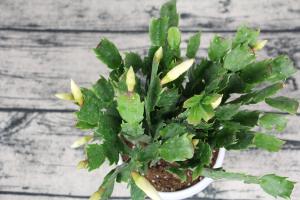Introduction
Tomatoes and peppers are both delicious and versatile vegetables that can be used in an array of dishes. When planting these two vegetables, it is important to consider what other plants can be planted alongside them to maximize the yield and overall health of the garden.
Companion planting with tomatoes
Tomatoes are a popular garden vegetable that require a lot of attention and care. However, planting them alongside the right plants can help reduce the occurrence of diseases and pests. Here are some companion plants that are best planted with tomatoes:
Basil: This aromatic herb repels pests like flies and mosquitoes while promoting the growth and flavor of tomatoes.
Carrots: Planting carrots alongside tomatoes helps improve the soil structure and prevent soil-borne diseases.
Marigolds: These flowers repel nematodes and other pests that can harm tomatoes.
Onions: Onions emit a strong scent that repels pests, such as carrot rust flies and slugs, that can damage tomatoes.
Companion planting with peppers
Peppers are a heat-loving crop that thrive when grown alongside the right companion plants. Companion planting peppers can help retain moisture in the soil, suppress weeds, and ward off pests. Here are some plants to consider planting with peppers:
Basil: Just like tomatoes, basil is a great companion plant for peppers. Basil repels pests, such as aphids and spider mites, while enhancing the flavor of peppers.
Nasturtiums: These flowers attract beneficial insects, such as bees and garden spiders, that help control pests and improve the overall health of the garden.
Oregano: Oregano is a natural pest repellent that can help keep pests like aphids at bay.
Radishes: Planting radishes alongside peppers can help repel cucumber beetles and other pests that can harm pepper plants.
Plants to avoid planting with tomatoes and peppers
While some plants can enhance the growth and flavor of tomatoes and peppers, others can have a negative effect on these vegetables. Here are some plants to avoid planting with tomatoes and peppers:
Fennel: Fennel excretes chemicals that can inhibit the growth and flavor of neighboring plants, including tomatoes and peppers.
Brassicas: Plants like broccoli, cauliflower, and kale all attract pests that can harm tomato and pepper plants.
Corn: Corn attracts pests like cutworms and corn earworms that can damage tomatoes and peppers.
Conclusion
By planting the right companion plants with tomatoes and peppers, you can improve the health and yield of your garden while also working to ward off pests and diseases. Keep in mind that not all plants are compatible with these vegetables, so consider the best possible combinations to ensure a healthy and productive garden.

 how many times do yo...
how many times do yo... how many planted tre...
how many planted tre... how many pine trees ...
how many pine trees ... how many pecan trees...
how many pecan trees... how many plants comp...
how many plants comp... how many plants can ...
how many plants can ... how many plants and ...
how many plants and ... how many pepper plan...
how many pepper plan...































